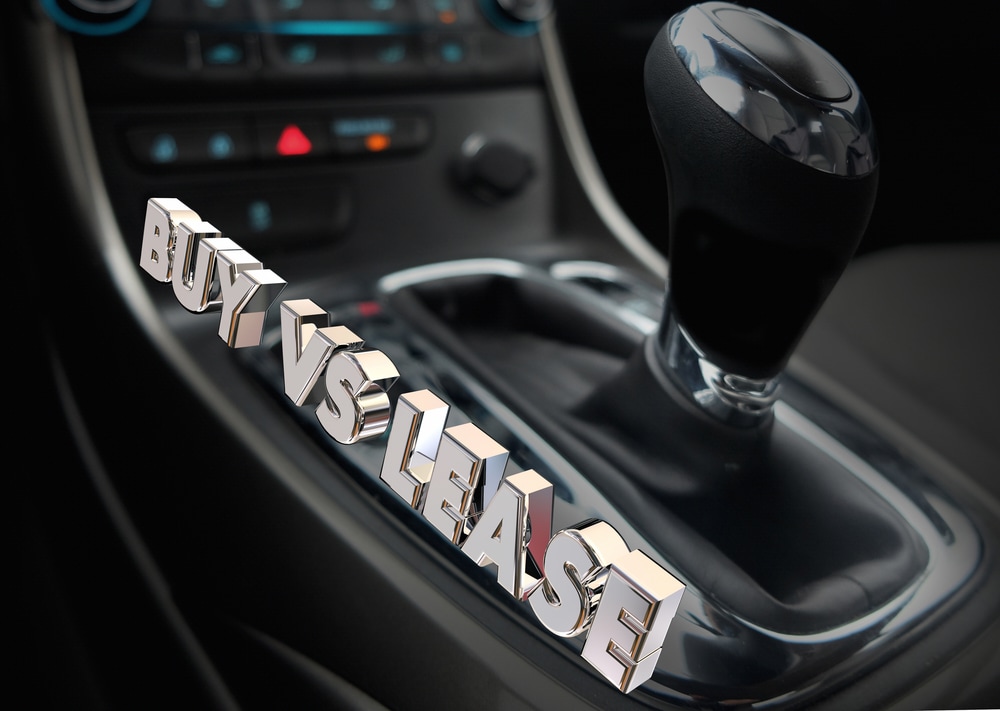

When it’s time to get a new vehicle, one of the biggest decisions you’ll make is deciding whether to buy or lease. It’s not always an easy choice, especially with so many factors to consider.
In this guide, we’ll break down the main differences between buying vs leasing, to help you figure out what makes the most sense for your lifestyle and budget.
Buying vs Leasing Differences Explained
1. Upfront Costs & Monthly Payments
Let’s start with the money side of things. If you choose to buy a vehicle, you’ll typically make a larger down payment — around 10% to 20% of the vehicle’s price on average — along with taxes, fees, and financing costs. Once you’ve paid off your loan, those monthly payments stop, and the car is all yours.
Leasing, on the other hand, usually requires less cash up front. You might only need to cover the first month’s payment, a security deposit, and a few fees. Monthly lease payments also tend to be lower compared to financing a purchase. That’s because you’re only paying for the portion of the car’s value used during the lease term.
2. Ownership, Flexibility & Long-Term Value
Buying gives you full ownership. That means you can drive the vehicle for as long as you want, build equity over time, and eventually sell or trade it in. For drivers who plan to keep their Ford for 5+ years, buying often ends up being the more cost-effective route.
Leasing offers more flexibility. At the end of your lease, you can return the car, renew your lease, or lease a newer model. If you enjoy always having the latest models or just don’t want to deal with resale, leasing makes that easy.
3. Mileage Limits & Wear Policies
One of the biggest drawbacks to leasing is mileage restrictions. Most leases come with a cap, typically 12,000 to 15,000 miles per year. If you go over, you’ll have to pay for each extra mile. This can add up fast for commuters or road trip fans.
In contrast, buying a car instead of leasing it means you can drive as much as you like without worrying about mileage penalties. It’s a better fit for people with longer commutes, travel-heavy jobs, or those who plan on keeping the vehicle long term.
Leases also come with wear-and-tear guidelines. Minor dings or interior stains could lead to extra charges at the end of the lease. Owners on the other hand, have more freedom – and fewer fees – when it comes to vehicle condition.
4. Customization & Maintenance
Want to add custom rims, a lift kit, or a new audio system? Buying a vehicle gives you full control over upgrades and personalization. You can modify it any way you like.
Leased vehicles, however, must be returned in nearly the same condition they were leased in. Most leases prohibit permanent modifications, so if personalization is important to you, buying is the better route.
5. Contract Terms & End-of-Term Options
When you buy a Ford, the contract is fairly straightforward. There are no return requirements or inspection checklists. You’re free to trade it in, sell it, or keep it for as long as you like.
Leasing contracts, however, come with clear start and end dates. And, when your lease ends, you’ll need to either return the vehicle, lease a new one, or (in some cases) buy out the leased vehicle at a preset price.
Some lease agreements even include disposition fees or charges for early termination. That’s why it’s important to read and understand the lease terms carefully before signing and ask about flexibility if your situation changes.
Should You Buy or Lease Your Next Vehicle?
The short answer? It depends. There’s no one-size-fits-all choice, as the right option comes down to how you drive, your financial goals, and what you expect from your vehicle. That said, understanding a few key points can make the decision much easier.
Here’s a quick breakdown to help you determine if it would be better for you to lease or buy a car based on your needs:
- If upfront costs and monthly payments are your top concern, leasing could give you more breathing room with lower initial and monthly payments.
- If you plan to hold onto your vehicle for the long haul and want to build equity, buying might make more financial sense in the long run.
- If you drive a lot or have a long commute, buying protects you from mileage penalties and gives you full freedom to roam.
- If you want to personalize your vehicle or make major upgrades, buying gives you the freedom to modify your vehicle any way you like.
- If you like predictability and don’t mind switching vehicles every few years, leasing is a good match. But if you want full control without return deadlines, buying is the better route.